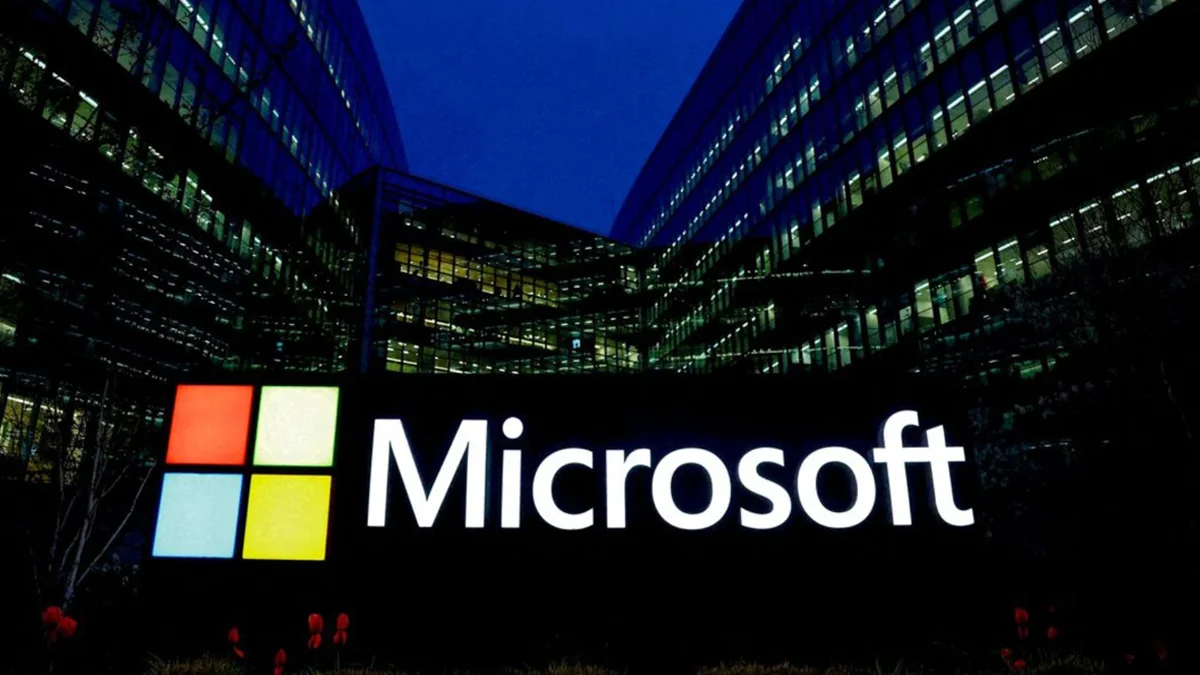Necessary Always Active
Necessary cookies are required to enable the basic features of this site, such as providing secure log-in or adjusting your consent preferences. These cookies do not store any personally identifiable data.
|
||||||
|
||||||
|
||||||
|

Microsoft is reporting its quarter two earnings today, 30th July. As it does so, its investors are asking big questions about Microsoft’s AI slow payoff. An obvious question is whether the growth of its Azure cloud-computing business justifies the billions spent on AI infrastructure.
According to Yahoo Finance, Microsoft is seen as a front-runner in the AI space due to its relationship with OpenAI.
This quarter, Visible Alpha data shows the tech giant could report steady growth of its Azure business at about 31%. While this growth would align with Microsoft’s forecast, investors expect its AI business to make a bigger contribution since it accounted for 7% of Azure’s growth in quarter one of this year.
“Investors will be very focused on Microsoft’s ability to continue to accelerate revenue growth, especially the portion related to AI. If revenue acceleration doesn’t materialize and increases in capex continue, investors may be disappointed,” Senior Software Analyst at D.A. Davidson, Gil Luria said.
Analysts say capital spending in Microsoft may have risen 53% to reach the $13.64 billion mark in the current quarter. This is a significant increase from the $10.95 billion reported in the past quarter.
Fears that heavy spending on data centers by the tech giant would yield minimal returns in the short term have been rife in the U.S. this month. This happened after it emerged that Wall Street was being overly optimistic about growth of earnings.
Last week, Alphabet shares dropped by more than 5% after its quarterly capital spending surpassed estimates by close to $1 billion. Its revenue from AI integrations was modest. This triggered a selloff across leading tech giants.
Microsoft emphasizes the need to spend on data centers now to fix the capacity problem that’s hindering its ability to leverage the growing AI demand.
Microsoft has leveraged high spending to work with other businesses, including big enterprise clients, to expand AI access through its cloud service. It also rolled out features like 365 Copilot Assistant for Excel and Word.
Microsoft’s Copilot service summarizes emails into bullet points and completes computer code lines. 50% of Fortune 500 companies use this $30-per-month service. Analysts hold that the impact of Copilot will be more evident in quarter three and four of 2024.
“While a lot of focus has been on consumer-facing applications like ChatGPT, (generative AI) is potentially a larger opportunity for enterprise and Microsoft is incredibly well positioned to capitalize on their install base,” Igor Tishin, Harding Loevner Analyst said.
This year, Microsoft share price rose by about 13%. This boosted the tech giant’s market value by more than $350 billion.
On July 5, the stocks hit the highest price, before dipping by close to 9% following Microsoft’s slow payoff. The tech giant is expected to report a 14.6% growth in overall revenue this quarter compared to the 17% growth reported last quarter.